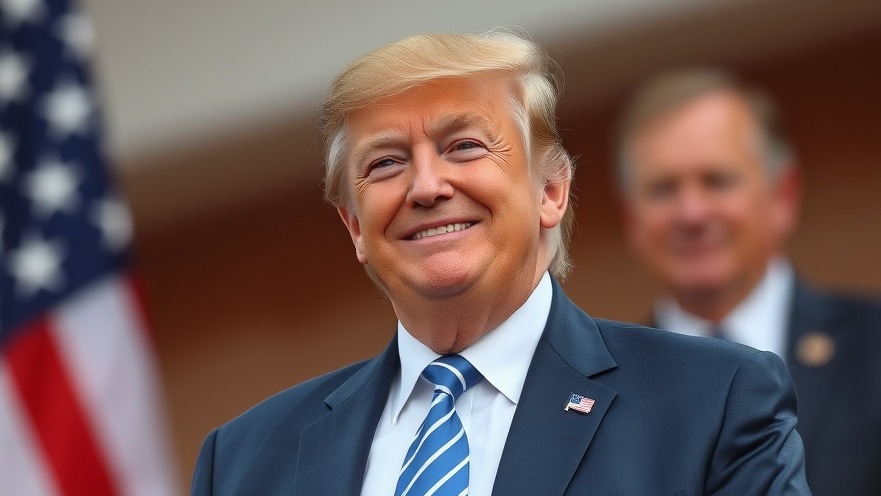
YouTube's $24.5 Million Settlement: A Landmark Moment in Big Tech and Free Speech
In an unexpected turn of events, YouTube has agreed to a settlement of $24.5 million with former President Donald Trump to resolve a contentious lawsuit stemming from the suspension of his account after the January 6, 2021, Capitol riots. This settlement not only wraps up one of the most significant legal disputes between a prominent political figure and a major technology company but also raises questions about the role of social media in society and the implications for free speech.
A Series of High-Profile Settlements
This latest agreement comes as part of a trend among social media giants to settle legal claims made by Trump. In total, Trump's claims against YouTube, Meta (formerly Facebook), and Twitter (now X) have culminated in over $90 million in settlements within the past year. Meta initially settled for $25 million, while X followed with a $10 million agreement, addressing similar accusations of censorship and infringement on his First Amendment rights.
While Trump has portrayed these settlements as victories against Big Tech censorship, critics argue that they may encourage more unaccountable behavior among these companies. With the recent bipartisan scrutiny aimed at social media platforms, it's evident that the political landscape around digital expression is shifting rapidly.
Content Moderation and Civil Discourse
The suspension of Trump's accounts was partially triggered by allegations that his rhetoric could incite further violence. YouTube had cited concerns over ongoing potential for violence when it decided to take action. This raises important discussions about the balance between maintaining civil discourse and adhering to freedom of speech protections. Legal analysts have pointed out that social media platforms retain considerable power to curate the content that appears on their sites, often leading to debates about who defines what constitutes acceptable speech.
In light of YouTube's decision to reinstate Trump's account in March 2023, just as his presidential campaign began, it seems that platforms are increasingly seeking to navigate the treacherous waters of political discourse more cautiously, attempting to balance their community guidelines with the prevailing political climate.
The Implications of Settlements
This series of legal resolutions could set precedents for future interactions between politicians and social media companies. A group of senators, including Elizabeth Warren, raised alarms about whether these exchanges could potentially run afoul of federal bribery laws. The letter they sent to Google’s leadership highlights concerns about companies avoiding full accountability for their actions through monetary settlements.
Sunday’s court documents specified that the $24.5 million settlement would see $22 million directed towards the Trust for the National Mall, a nonprofit committed to restoring various aspects of America’s historic site, and $2.5 million allocated to other involved plaintiffs. Critics of the settlements argue that donating such funds can create the appearance of a quid-pro-quo arrangement, undermining the accountability that lawmakers are keen to enforce.
The Road Ahead for Big Tech
As social media platforms continue to exert significant influence over public figures, the outcomes of these lawsuits will likely prompt changes in the legal framework governing online expression. The recent settlements also denote a trend of reining in formerly strict content moderation practices — a shift that can reshape the digital landscape significantly. With major players like Elon Musk taking charge of platforms like X, there’s potential for a more laissez-faire approach to managing contentious narratives.
Furthermore, a more lenient stance on content moderation may impact the credibility of social media platforms in the eyes of their users. Americans are increasingly expressing concerns about the role of misinformation in political discourse, making it vital for companies to strike the right balance moving forward.
Conclusion: What Does This Mean For Users?
The settlement between YouTube and Trump opens up a wider dialogue on the nature of online speech, civil rights, and the responsibilities of technology companies in moderating content. As the landscape evolves, users must remain vigilant about the implications these decisions have on free speech and accountability in an increasingly digital world.
This is a pivotal moment that requires ongoing observation, as society navigates the complexities of political dialogue on digital platforms. Will these settlements lead to a newfound leniency for controversial figures, or will they rekindle debates about the necessity of moderation? Only time will tell as the story unfolds.
As citizens, staying informed on developments in social media and their implications on our rights is crucial. Engage with the conversation around these topics to promote a more balanced digital public square.
 Add Element
Add Element  Add Row
Add Row 



Write A Comment